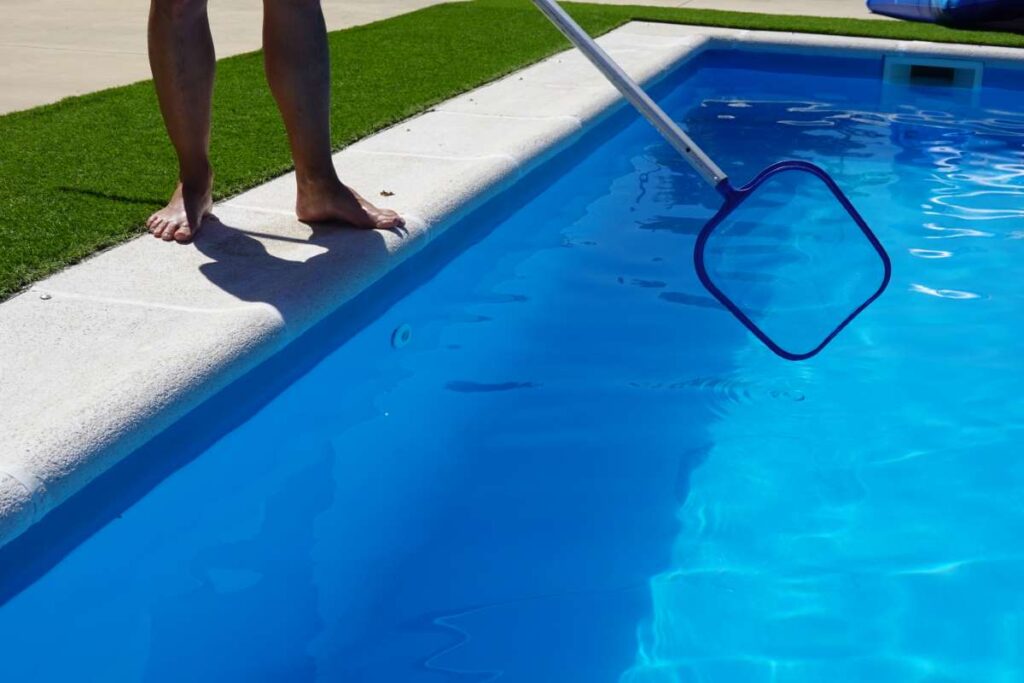Explore the hidden legal risks of pool route ownership and how to navigate them effectively for a successful business venture.
The Most Overlooked Legal Risks in Pool Route Ownership
Owning a pool route can be a lucrative business decision, but it comes with a set of unique legal challenges that often go unnoticed. Many entrepreneurs jump into pool service ownership with enthusiasm, focusing on customer acquisition and service delivery, yet they frequently overlook crucial legal considerations. In this article, we will delve into the less-discussed legal risks associated with pool route ownership, providing insights into how to mitigate these risks effectively. Understanding these issues not only protects your investment but also strengthens your business’s foundation for growth.
As the pool maintenance industry continues to grow, the number of pool service businesses is on the rise. Unfortunately, with this growth comes an increase in the potential for legal complications. From contract disputes to liability concerns, the legal landscape can be complex for new and existing pool route owners alike. This blog post will discuss several key areas that require careful attention, including contracts, insurance, compliance with local regulations, and employee management.
Understanding Contracts and Agreements
One of the most significant legal risks in pool route ownership stems from contracts. Many business owners enter agreements without fully understanding the terms, which can lead to disputes down the line. When purchasing a pool route, it’s crucial to have clear contracts that outline all responsibilities and expectations. In Florida and Texas, where the pool service market is booming, having a watertight agreement can make or break your business.
For instance, service agreements with customers should specify the exact services provided, payment terms, and cancellation policies. This clarity prevents misunderstandings and potential lawsuits over service failures or payment disputes. It’s advisable to consult with a legal professional who specializes in the pool service industry to draft or review these contracts, ensuring they comply with local laws.
Moreover, when acquiring an existing pool route, ensure that the seller provides all relevant contracts associated with the business. This includes contracts with suppliers, subcontractors, and existing customers. Reviewing these documents will help you identify any potential liabilities that come with the purchase and allow you to negotiate better terms if necessary.
Navigating Liability and Insurance Issues
Liability is another critical concern for pool route owners. Accidents can happen, whether it’s a slip and fall on the job site or equipment malfunction that leads to property damage. Without proper insurance coverage, you could find yourself in a financially devastating situation. It’s essential to have general liability insurance that covers bodily injury and property damage arising from your business operations.
In addition to general liability, consider other types of insurance specific to your needs. For instance, professional liability insurance can protect you against claims of negligence, while workers’ compensation insurance is necessary if you have employees. These policies not only provide financial protection but can also enhance your credibility with customers.
Moreover, pool service business owners should regularly review their insurance coverage to ensure it aligns with their business activities. Changes in your operations, such as adding new services or expanding your customer base, may require adjustments to your policy to maintain adequate protection.
Compliance with Local Regulations
Pool route owners must also navigate a patchwork of local regulations that can vary significantly between states and municipalities. In Florida and Texas, specific permits and licenses are required to operate legally. Failing to comply with these regulations can lead to fines or even the shutdown of your business.
It’s vital to stay informed about local laws governing pool maintenance, such as safety standards, chemical usage, and waste disposal regulations. Engaging with local industry associations can provide valuable resources and updates on regulatory changes that may impact your business.
Additionally, consider conducting regular audits of your business practices to ensure compliance. This proactive approach can mitigate potential legal risks and reinforce your commitment to operating within the law.
Employee Management and Employment Law
Managing employees introduces another layer of legal responsibility for pool route owners. It’s essential to understand employment laws, including wage and hour regulations, workplace safety standards, and employee rights. Misclassifying employees as independent contractors can lead to severe penalties, so it’s crucial to classify your workers correctly based on their roles.
Moreover, implementing clear policies regarding workplace conduct, safety protocols, and employee benefits can help mitigate legal risks associated with human resources issues. Regular training sessions on workplace safety and legal compliance can also foster a culture of accountability and reduce the likelihood of accidents or disputes.
Furthermore, maintaining comprehensive records of employee performance, training, and incidents can serve as crucial evidence if any legal issues arise. This documentation can protect your business if an employee files a complaint or if regulatory bodies conduct audits.
Environmental Regulations and Compliance
As a pool service provider, you will also need to comply with various environmental regulations. Improper disposal of chemicals and waste can result in significant fines and harm your reputation. It’s important to be aware of local laws regarding chemical handling, storage, and disposal.
Ensure that you are using environmentally friendly chemicals whenever possible and that you are disposing of waste in accordance with state and federal regulations. Engaging with environmental consultants or attending industry-specific seminars can help you stay informed about best practices and compliance obligations.
Additionally, promoting environmental responsibility within your business can enhance your brand image and attract environmentally conscious customers. Implementing sustainable practices not only helps the planet but can also lead to cost savings and improved operational efficiency.
Intellectual Property Considerations
In the competitive pool maintenance industry, protecting your intellectual property (IP) can be crucial. Whether it’s your branding, customer lists, or proprietary service methodologies, ensuring your IP is safeguarded can prevent competitors from leveraging your hard work. Registering trademarks for your brand name and logo can provide legal protection against infringement.
Additionally, consider drafting clearly defined non-disclosure agreements (NDAs) with employees, subcontractors, and partners to protect sensitive information. If you have developed unique processes or methods for pool maintenance, keeping these proprietary through legal means can give you a significant competitive advantage.
Moreover, staying informed about IP laws and potential infringements can help you act quickly if someone attempts to misuse your intellectual property. Consulting with an IP attorney can provide guidance on the best strategies for protecting your assets.
Seeking Expert Guidance and Resources
The complexities of legal risks in pool route ownership can be overwhelming, but you don’t have to navigate them alone. Seeking guidance from industry experts and legal professionals can provide invaluable support. Tower Business Brokers, Inc. specializes in pool route sales and brings extensive experience to the table, assisting clients in understanding and mitigating legal risks.
Utilizing resources such as workshops, online courses, and legal consultations can enhance your understanding of the legal landscape surrounding pool service ownership. Networking with other business owners can also provide insights and strategies for managing legal challenges effectively.
Moreover, consider exploring [Pool Routes for Sale](https://pool-routes-for-sale.com/) for comprehensive assistance and access to a variety of established routes, complete with built-in customer bases and invaluable operational support.
Conclusion
In conclusion, while pool route ownership presents numerous opportunities for financial growth, it also carries significant legal risks that must not be overlooked. From understanding contracts and managing liability to navigating environmental regulations and protecting intellectual property, being proactive can safeguard your investment.
By staying informed and seeking guidance from industry experts, you can build a resilient business that thrives in the competitive pool maintenance market. Don’t underestimate the importance of addressing these legal aspects; they are critical to your long-term success. If you’re considering entering the pool service industry or looking to expand, contact us today to explore your options and learn more about how we can support your journey.
Take the first step toward successful pool route ownership with confidence and clarity.



